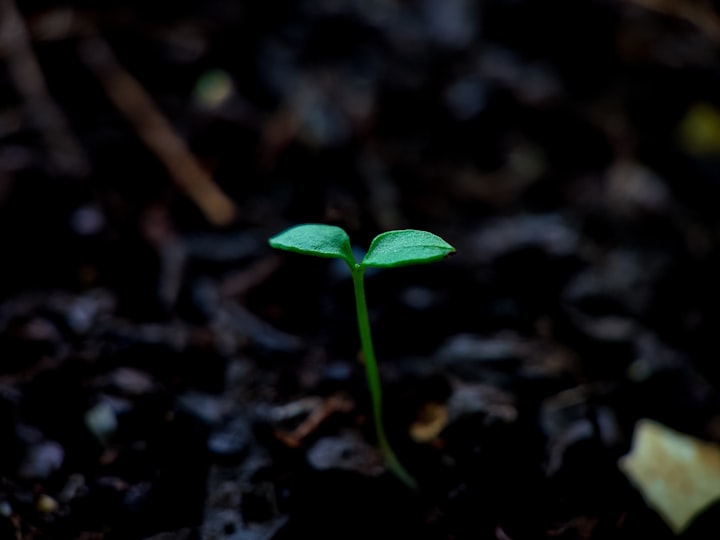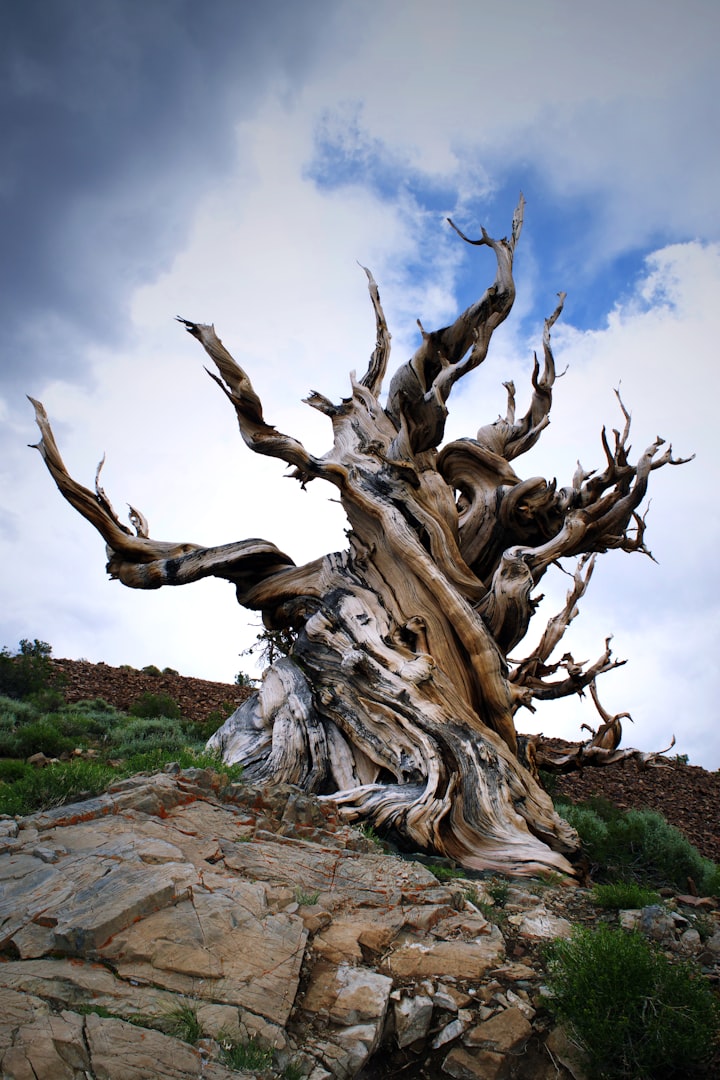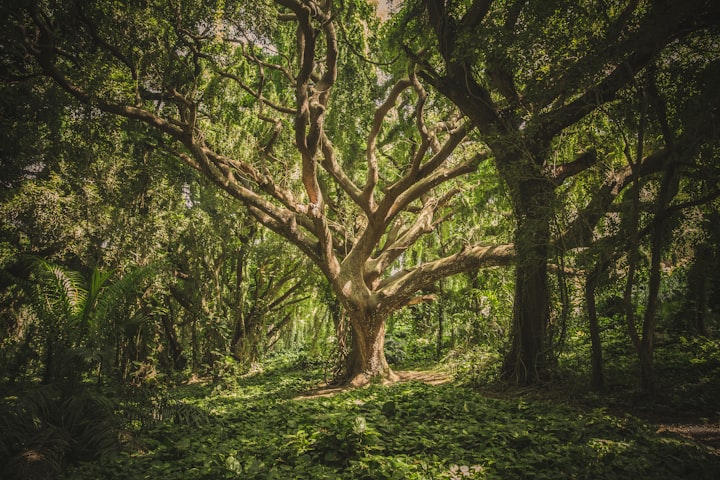The Settlers
There weren't always dragons in the Valley. However, much like volcanic eruptions, or inter-galactic asteroids - they leave their mark.
It is said that when volcanoes erupt, they bring both life and death. Volcanic lava can reach approximately 1,170 degrees celsius and upon contact with human skin, it will tear through it relentlessly, reducing it to lifeless matter within seconds. Yet, the ash which volcanoes leave behind transforms into a soil so rich in minerals that it provides an excellent source of life for vegetation. How strange... the very thing that can kill mercilessly and without sentience can also bring about boundless life and energy.
The dragons of Omnedare had a similar effect.

It was said that years ago, settlers who were weary from travelling, having had little to no sustenance for weeks on end, stumbled across a true bounty in nature. What lay before them was no ordinary valley because unbeknownst to the travellers, dragons had lived there once. These creatures were nothing like the vicious beasts depicted in fairytales, setting villages and castles ablaze with their furious firebreath. The dragons which resided there were much more gentle in nature and lived a little like humans did, in communities and civilisations. They possessed hearts purer than snow and wielded magic beyond anyone's wildest beliefs.
Legend tells us that their tears were formed of pure liquid crystal, and could generate life upon touching the ground. As well, when their large armour like scales shed, they disintegrated into a fine powder which enriched the soil imbuing it with all the nutrients necessary for continuous bloom and growth. Their most notable gift was that of their firebreath. Their firebreath could rip through trees for miles on end, leaving nothing but skeletons of branches and roots in its path. However, whatever grew there afterwards was well and truly alive. There was no ill weather or change in climate that could destroy the growth there, and anything that was born there continued to thrive under any condition. A true wonder and paradox of nature.

To the settlers now, many centuries later, this valley was an endless expanse of thicketed trees; the leaves of which were all brilliant colours of azure, green, indigo and scarlet. There were also bushes which provided endless supplies of bulbous, round fruit and though plain looking, eating one could give a human on the brink of starvation enough energy for a week. There was also a powerful stream running split-through the middle of the mountainous forests and it provided no ordinary water. This water was sweet, but not sickly and seemed to invigorate the drinker beyond any sort of medicinal tonic.
These travellers desperate for a place to bear their roots decided to call this panacea home. They used the thick, durable, yet flexible wood from the trees to create shelters. They were able to weave the dried leaves from the fruit bush into fabric which provided delicate, breathable, yet protective clothing. It seemed that anything which this forest provided was able to morph itself to match the environment it resided in.
The small community gained strength and multiplied in number, finally in enough health to reproduce and create lineages of their DNA. They were happy, content and grateful for several long glorious years. However, not long after their original settlement, the once humbled and awed humans began to fall prey to the very nature of their being - greed.
Unfortunately, as all humans go, they generally fall prey to the trap of hedonistic adaptation. Whereby one becomes immune to the things they once craved, longed for, and needed. They begin to see these things as mundane and utterly ordinary. At worst, yet sadly too often-occurring, this can transpire into greed.

The village began to have greater aspirations for creating wealth out of the wonders that the forest could provide. And this revolution came at the behest of the chieftain Noncor. On one brilliant autumnal evening, he had gathered the community around the never-ending fire, which naturally calibrated its flame size and heat. Standing proudly before them all, he coughed loudly to command the attention of his people.
In a rapturous, bordering on sycophantic tone, he bellowed into the night, "my great people of Omnedare, I gather you all here today to invite you upon a most bounteous, fortune yielding journey. It is an honour to stand here with you great, honourable men, women and children to announce our new order and vision for this quest.
It is our civil duty to provide for the generations that come after us, and to honour our ancestors who were bereft before us. We must share our good fortune with the world. We can be the pioneers of the new world. Ailment will not exist, poverty and starvation will become a faded memory, and everyone can live in abundance as we do.
Henceforth, we shall dedicate all of our efforts into sharing the goodness of our fortune. We shall harvest what this gracious land has bestowed upon us and spread it far across our land. This is our duty. This is our purpose."
The audience watched, enamoured by the chieftain's communicative charm, 'ooh-ing' and 'ah-ing' with the way his words strung together seamlessly and powerfully, like an arrow loaded into a bow. Once the echoes of his final words faded off into the distance, the entire crowd erupted into applause. Some citizens even bowed themselves at his feet, hungrily wishing to demonstrate their love and devotedness to their beloved leader.

For a while, everyone worked in unison as they all shared a common goal driven by altruism and love for their land. People worked tirelessly in shifts, venturing far and deep into the forest to harvest the endless supply of magical roots, leaves and fruits. Upon returning to the village, they would store these treasures in Noncor's residence. Neatly packaged and arranged, the settlers had plans to journey further across the land beyond the trees to share these wonders with whomever they felt could benefit.
Yet, Noncor had very different plans. He had plans to become a trade merchant, secretly pocketing any gold and using useful information as currency to better his own name as the greatest chieftain in history. While blinded by his arrogance and greed, the land was smarter than this. It detected the seismic shift in the once humble intentions of these settlers and it recalibrated itself to this change in sentiment.

See, where the land once provided bounty in exchange for mutual love and care, the very opposite was true. Where it sensed that it was being robbed for immoral gain, it would return the same destruction in equal measure. While the dragons were benevolent creatures generally, they were also powerful and fierce. It seems that the earth of Omnedare possessed the same traits.
The fruits would become sour upon picking, there were strange liquids that oozed from the tree bark, stinging anyone who touched them, and the water that once ran clean in the stream become mudded and still. This was quite the catastrophe for the villagers for they could not comprehend how the land had entirely changed itself virtually overnight. Even in the deep winters of the valley, the forest had always unconditionally provided the same wonders as it would in the deep of summer.
The people of Omnedare were also falling ill in rapid succession. The water was no longer drinkable and would leave even a healthy adult on their knees in weakness and desperation. Fortunately, the materials which had already been harvested were mostly still in tact. Yet, even rationing this out conservatively among all would render the village without anything come the following Spring. This change in events also certainly derailed Noncor's insidious plans.

Pleadingly, the chieftain consulted the local witch, or Sapientia, as she was called. She was a strange person for she was almost mute, and every day she wandered deep into the forest alone where she would breathe huge breaths, as though swallowing every microscopic mineral possible, and exhaling huge breaths from her belly as though returning the favour. In this instance, she muttered a few words back to Noncor.
"To find your fortune, you must go through the heart," as she pointed off into the distant trees.
The chieftain in his delusion took this to mean that there was a literal bounty or fortune which could reverse this terrible situation. So, he sent men, women and children into the forest to try and find its heart where such treasure would lie. At first, the fellow villagers were united in this quest to save the village from a terrible fate of illness and starvation. They lined up in rallies, with their heads held high and marched into the forest with no pursuit other than to find its centre.
However, the nature had soon become so twisted and corrupt that it turned on the people. Every step further they took into the forest, they would encounter disturbing, warped versions of what once lay before. The trees, bushes, and vines were a grotesque imitation belonging to a parallel universe inflicting nothing but toil and difficulty. Most people who entered the forest died within two days, or at least, they didn't return.

Still this tradition laboured on. Except the people became more and more fearful. They pleaded with the chieftain to stop this madness, relocate, and abscond his vision. However, he was a cruel dictator at heart and would stop at nothing in his pursuit for greatness. Eventually, he would grab people from their residences at random in groups and throw them into the forest, with no heart and no empathy, only greed. He would drag an old woman, resting peacefully, slightly shivering in the cold. He would drag a child who was less than a metre tall away from his parents with no remorse. He would stop at nothing.
Everyone lived in fear of the chieftain, yet there was also a sense of immobilisation in the air. Nobody left for no one truly knew what lay outside the forest. Its circumference was so wide, it was difficult to tell where it started and where it ended. Therefore, it was an impossible decision to make, for escaping into the woods meant a near guaranteed chance of peril anyway, but remaining in the village could easily lead to the same fate. And so, every week, citizens would live in fear of hearing the crunching of leaves outside their wooden shelters because when that noise inched closer, it meant that you were next.
Cora

I always had nightmares, ever since I could remember. I would wake up in the middle of the night screaming, "I don't want to. I don't want to. I don't want to," while wailing into my mother's chest, clutching on for dear life.
"My dear, my dear. I cannot make promises that are not my choice to keep. I share the same fears as you, right here," she whispered while pointing directly at her heart. "However, so long as you live your life with kindness, you shall never truly perish."
I couldn't understand these words. It seemed that mother always had a way of never straightforwardly answering a question. If I asked her a question about why some people are nice and some people are mean in the village, she would end up talking about rivers and clouds. However, her conviction and kindness could be felt, almost touched, with every word she spoke. With her, I could always return to a sound sleep.

She was chosen to enter the forest not long after this conversation. I was just ten years old; numb to the core for weeks after, paralysed with grief, fear and shock. I wept so hard that the wooden slab which I slept upon nearly crumbled and dissolved into the ground. My father tried his best, but he was also living in a hell of his own. Together, we'd sit in silence, chewing solemnly into the tough boiled roots we'd managed to harvest earlier in the day.
There was sadly not much time for grief. See, while it felt like a tragedy no one else could understand, it was commonplace in our village now. Entire family lines had been wiped out this way, sometimes within just a few weeks.
The next few weeks were a blur. If I was to try and remember, I would say that interspersed with occasional muffled cries, I tried to make little repairs to the house and gather measly herbs and roots for meals. My father did similar, joining the now weary villagers in the daily harvest, yet with so little left in nature, those harvests never took too long. I lived with a continuous sense of unease and trepidation. Feeling trapped, I often wondered whether my fate lay in starvation or at the hands of the forest. Seems things had come around full circle since the early days of the first settlers.

Laying my head down on a rainy evening, I listened to the downpour outside and heard a small drip, drip, drip, into a stone bucket near the doorway. The rain was soothing with its continuous streaming sound and the comforting scent of petrichor. The noise of nature was so loud and filled every crevice of my numbed brain that I entirely failed to register the sound of footsteps outside.
Knock, knock, knock. The knocking was a formality more than anything, because moments later, a heavy pair of footsteps entered our home and an all too familiar voice rose from the darkness.
"I am here for Cora."
If this was even humanly possible, every drop of blood left my body. I felt no longer alive, but just a body in a room.
My father ran to the front door, white with shock and then rooted to the spot. Noncor looked out emotionlessly into our near dilapidating abode. Within moments, my father began to weep and then burst out in a thunderous voice, "Noncor you are heartless, you are as barren as the forest that lays beyond here with equal measure of malice and poison. How dare you! The fate that you deserve will find you in the end!"
He ran to me, holding me up by the shoulders which seemed so small in his hands. Whispering quietly but firmly, "Cora, Cora... Cora, I have failed you. I should have protected you more. What a wretched fate this is. Cora... what are you going to do?"
My throat felt as though it had dried up, much like the rivers and streams that once produced sweet water. Shaking with every nerve ending in my body, I embraced my father possibly, nearly certainly for the last time as I whispered inaudibly, "I.. I'll.. be kind."
-
Thank you so much for reading the first chapter of "Perils Into The Heart of The Dragon," I hope you enjoyed it. If you did, make sure to leave me a comment and I'll get to writing chapter two!

About the Creator
AM
Psychology graduate who speaks on wellness, mental health, The Great Resignation and relationships.







Comments
There are no comments for this story
Be the first to respond and start the conversation.